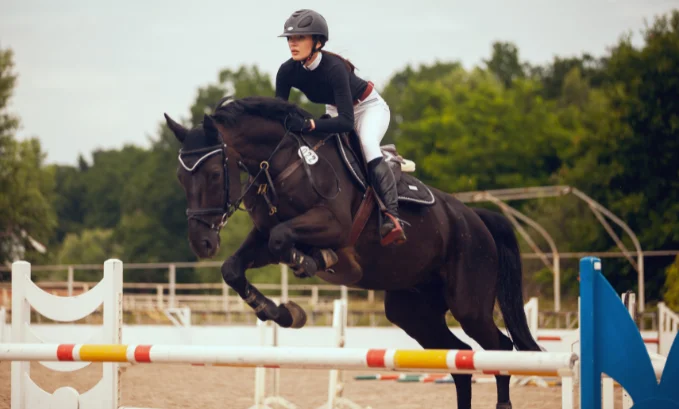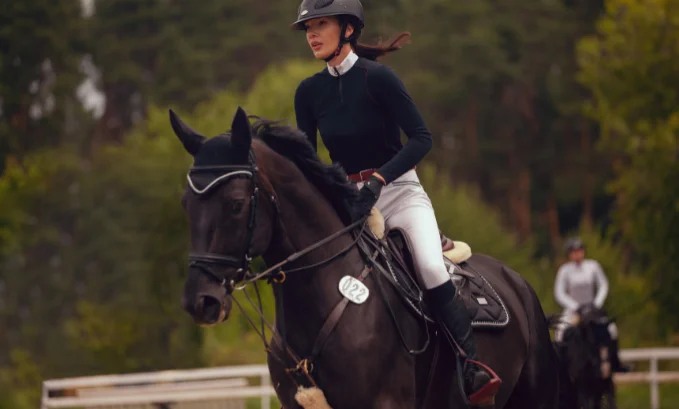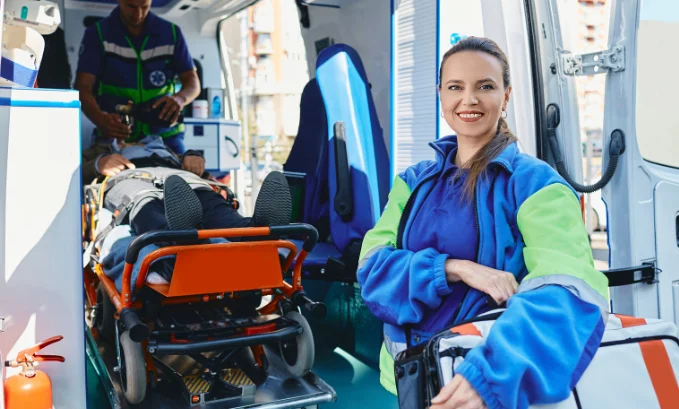Why Proper Medical Cover for Equestrian Events is a Must

Importance of proper medical cover for equestrian events
Medical cover for equestrian events is essential, as these activities can involve risks and potential hazards. Statistics show that injuries and accidents related to equestrian events are quite common. According to a survey conducted by the National Centers for Injury Prevention & Control, 8% of all horse-related injuries are sustained during organized competitions or shows. Among these, the most common injuries were fractures (37%), sprains and strains (19%), lacerations (15%), contusions and abrasions (14%), and traumatic brain injury (10%).
Given the high risk of injury associated with equestrian events, it is important that proper medical cover be provided. Emergency Medical Services (EMS) should be available at all times in order to ensure that injured participants receive prompt attention. Additionally, safety protocols should be put in place to minimize the potential for serious harm, such as helmet use among riders or protective fencing around arenas. Proper medical cover for equestrian events ensures that any injuries sustained at an event can be managed quickly and effectively, reducing the risk of long-term disability or other complications.
By providing adequate medical coverage for equestrian events, organizers have a responsibility to ensure the safety and well-being of participants. This allows riders to enjoy their sport without putting their health at unnecessary risk.
Understanding the Medical Needs of Equestrian Events
The most common injuries sustained by riders during equestrian events are head trauma (concussion), broken bones (especially ribs), shoulder injuries (dislocations or sprains) and lower back injuries (strains). More severe medical emergencies can include spinal cord injuries (paralysis) or traumatic brain injury. Horses can experience similar injuries such as fractures in the legs or feet from falls or lacerations from contact with sharp objects such as posts on fences or gates. The key is early recognition of an emergency situation so that proper medical care is obtained quickly.
Medical cover for equestrian events should always be available as an emergency measure. This includes emergency medical services (EMS) personnel who are trained to deal with life-threatening situations, provide first aid and trauma care where needed and transport injured persons to hospital if necessary. Having access to these services is essential for ensuring that the safety of participants is maintained at all times during the event.
Challenges in providing medical cover for equestrian events
Medical cover for equestrian events can be a difficult and challenging endeavor. Medical professionals must take into account the unique environment of events like these, as well as the safety and welfare of all involved.
For starters, equestrian events often occur in outdoor or remote locations, meaning that emergency medical services may not be readily available should an accident occur.
Additionally, medical personnel must be familiar with both human and animal anatomy to properly assess possible injuries and administer appropriate treatment. These medically trained personnel are also tasked with performing assessment, emergency stabilization, and even full surgery in certain cases–all while going up against extreme weather conditions or terrain that can make getting to the patient difficult.
Furthermore, equestrian events also pose additional challenges for EMS providers due to the nature of the sport itself. Professional riders may be required to carry their own personal medical cover for any eventualities or accidents that might occur during the event–which can add extra stress on both rider and provider if rules governing such cover have not been established beforehand.
Finally, due to the highly competitive nature of these competitions, there is always a risk that riders may push themselves beyond safe limits when competing–which further compounds the challenges faced by EMS providers trying to ensure everyone’s safety. With all these factors in play, it is clear why providing medical cover for equestrian events requires such specialized preparation and expertise.
Importance of Proper Medical Cover for Equestrian Events

Medical cover for equestrian events is essential. It is important to have emergency medical services (EMS) available to treat any injuries or health issues that may arise during a competition, as riding horses can be a dangerous sport.
Providing medical cover for equestrian events helps to ensure the safety of the riders, allowing them to participate with peace of mind knowing that should something go wrong, qualified medical personnel are on hand to provide assistance. Medical teams typically include paramedics, doctors and nurses who are specifically trained in emergency care for horse-related accidents and ailments.
Having such personnel present also provides reassurance for spectators, reducing their anxiety about attending an event where riders may be put in harm’s way. Medical cover for equestrian events can help create a positive atmosphere and allows people to enjoy watching equestrian competitions without worrying about the potential consequences of an accident or injury.
It is also important from a legal perspective to have proper medical cover for equestrian events in order to protect those involved from liability claims should anything untoward happen. Providing access to medical treatment minimizes the risk of more serious harm occurring by allowing prompt action in case of an accident or illness.
It is clear that having proper medical cover for equestrian events is absolutely necessary both for the welfare of participants and spectators alike, as well as providing legal protection for all parties involved. Therefore, it is paramount that event organizers ensure EMS are readily available and able to respond quickly should an incident occur.
Key Elements of Proper Medical Cover for Equestrian Events
A. Pre-Event Planning
Proper medical cover for equestrian events requires careful pre-event planning. Event organizers need to ensure that the venue has adequate safety protocols in place, such as proper fencing and barriers around the competition area, as well as sufficient and effective signage. Organizers should also consider potential risks associated with weather, terrain, and other environmental factors that could affect the health or safety of participants or spectators.
It is important for event planners to engage qualified professionals who can provide support and expertise in emergency medical services (EMS). Emergency medical technicians should be available on-site for the duration of the event to help provide immediate care in case of an injury or illness. The EMS personnel should be equipped with necessary supplies such as oxygen masks, splints, bandages, defibrillators, and other specialized tools that may be needed during a medical emergency. In addition to having staff members trained in first aid on site, it is essential to have appropriate numbers of ambulances and paramedics on standby at all times throughout the event.
Another important factor to consider when planning equestrian events is insurance coverage for participants. Event organizers must ensure that adequate coverage is provided for any injuries sustained during the event; this may include personal medical cover for both riders and horses as well as public liability insurance to protect against third-party claims arising from accidents at the event. It is also beneficial to make sure that all participants understand their obligations under any applicable terms of their insurance policies before they compete in order to avoid any misunderstanding or disputes later on.
On-Site Medical Services

Having an on-site medical team available to provide emergency medical services (EMS) in the event is essential.
The on-site medical team should include experienced paramedics and/or qualified medical practitioners with a sufficient range of skills and equipment needed to manage any potential equine-related injuries or illnesses that occur during the event. A well-equipped first aid station should be established that includes equipment such as splints, dressings, resuscitation devices, oxygen tanks and advanced life support medications.
The on-site medical services should also include pre-event health checks for all horses taking part in the event and regular post-event examinations to help identify any issues that need to be addressed before further events take place. The medical team should also be able to provide advice on suitable methods of prevention, management and treatment for any veterinary problems encountered during the event.
Pre-event risk assessments should be conducted as well by the designated personnel in order to identify potential risks associated with equestrian activities, determine possible treatments for any injury or illness that might arise and create a comprehensive plan of action that covers everything from basic first aid protocols up to complex emergency scenarios such as major trauma or cardiac arrest in a horse. It is also important for there to be an effective communication system between the medical staff so they can coordinate their response quickly in case of a serious incident.
Emergency Action Plan
When planning a large equestrian event, it is essential to have proper medical cover in place to ensure the safety of all who are present. An emergency action plan should be established that outlines the protocols for providing emergency medical services (EMS) if necessary. This plan should include the following key elements:
1) Accessibility: The medical support should be situated close enough to the main venue so that they can respond quickly and efficiently to any situation that may arise.
2) Staffing: There should be sufficient personnel available during the event, including qualified paramedics and other first responders, who can provide immediate assistance in case of injury or illness.
3) Equipment: Depending on the size and scope of the event, there may need to be additional equipment, such as stretchers, defibrillators, ambulances and/or helicopters, available for transport of patients if necessary.
4) Communication: Clear communication between medical staff, event organizers and other authorities is essential for ensuring an effective response in any kind of emergency. Pre-determined radio frequencies or cellphone numbers should be allocated for this purpose and everybody’s contact information should be readily accessible.
5) Training: It is important for each member of the medical team to receive training specific to equestrian events before attending an event. This will help them understand how best to handle different types of injuries or illnesses common among equestrian sports participants.
Proper medical cover for equestrian events is essential for keeping everyone safe at any large gathering – especially those involving horses – so make sure you take steps now to ensure your next event is fully prepared!
Benefits of Professional Medical Cover for Equestrian Events
Equestrian events can be dangerous, and having professional medical cover is essential to ensure the safety of riders and animals alike. Professional Emergency Medical Services (EMS) provide a range of benefits which help minimize risks associated with equestrian events.
For starters, they provide round-the-clock access to onsite medical care that is tailored to the needs of the event. This means that qualified personnel are available to assess any injuries or illnesses, administer appropriate treatments and prevent further harm from being done. EMS staff also possess specialized skills such as airway management and advanced cardiovascular life support, allowing them to take immediate action in cases where prompt medical responses are needed.
In addition to providing direct medical care, professional medical cover for equestrian events can also help reduce liability by ensuring that the event is compliant with health, safety and insurance regulations. This ensures all involved parties are protected, including participants, spectators and staff. It also helps protect organizers from legal repercussions in the event of an incident or injury during their event.
Professional medical cover for equestrian events can be invaluable in terms of offering peace of mind to all those taking part or simply attending an equestrian event. Knowing that trained professionals will be available to provide assistance at all times allows everyone involved in the event feel more secure and confident in their safety.